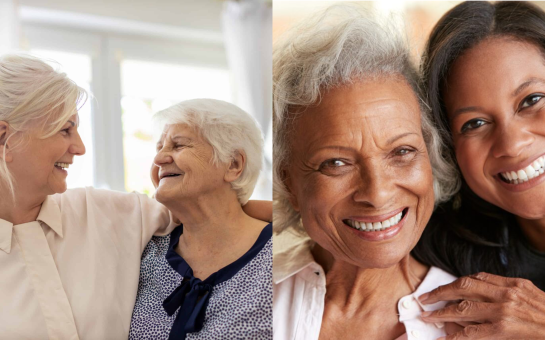Two Wandsworth Macmillan programmes won prizes at this year’s inaugural Transforming Cancer Services Team Awards.
Macmillan Move More Wandsworth won the Personalised Care in Rehabilitation Physical Activity award while Macmillan and St George’s Hospital’s Get Set 4 Surgery programme won first prize for Personalised Care in Prehabilitation.
The Macmillan Get Set 4 Surgery programme, which has been running for just over a year, involves weekly ‘surgery school’ sessions to help prepare patients before surgery both mentally and physically.
Katherine Jarman, 56, was one patient who benefited greatly from the scheme.
Katherine said: “I’ve never been ill in my entire life, never been to hospital, never even had minor surgery and suddenly I was facing major abdominal surgery for cancer.
“Partly keyhole but partly open so I was absolutely terrified and they got me on to surgery school very quickly.
“It was absolutely brilliant. It just took away so much of the fear and it demystifies it.”
She added: “I just don’t know how I would have coped without it. I was already a bag of nerves on the morning of my surgery. So I would have had a nervous breakdown if I hadn’t known everything they told us to reassure us.
Dr Carolyn Johnston, consultant anaesthetist at St George’s Hospital said: “We had a listening event where we sat down with patients and they told us what it was like to go through the surgical journey.
“There was a big message there around just knowing what to expect and being an active part of their own care rather than just getting a diagnosis, and a lot of patients’ dissatisfication came from just not knowing what’s going to happen.
“Parallel to that, this idea has cropped up in a couple of different hospitals of trying to make patients fitter before their surgery because you have a better recovery if you’re fitter before you start.”
Usually, cancer patients are diagnosed by their surgeon and given a surgery date without really knowing what to expect.
Dr Johnston said: “I can only imagine what it must be like to have this serious diagnosis and then try to take in lots of different information immediately after.
I think you probably don’t hear very much after that, you’re just knocked for six by what happened. This gives them a bit more control over what they’ve got to come.”
Many patients bring a few loved ones who are all welcome as they provide a strong support system and often have questions themselves.
Sessions consists of 10 to 15 minute talks from various specialists. As an anaesthetist Dr Johnston talks to patients about controlling their pain, a psychologist speaks on mental wellbeing, a physiotherapist on physical wellbeing, a dietician on eating well and a nurse on the practical information of exactly what to expect on the day of surgery.
The main message of getting fitter before surgery for a quicker recovery has been most effective in patients’ rehabilitation.
Dr Johnston said almost 100% of patients are walking the day after their surgery compared to around 70-85% before the scheme began.
Katherine said: “There was a very good session with the physiotherapist about what you could do beforehand in preparation like get more exercise, eat more healthily. But it was very helpful about what to expect afterwards. The guide was if you can walk a mile without getting out of breath before the operation, you should be able to expect to walk a mile four weeks after you get out of hospital. It was very helpful in terms of what goals you can set.”
She added: “The session from the psychologist was also quite helpful. Some of it was about preparing for your operation mentally but a lot of it was about afterwards and how you’re going to feel.
“People get terribly emotional and it’s frustrating trying to get back into daily life.”
While the period of Macmillan funding has ended, the hospital trust has now agreed to continue funding which allows the scheme to open up to all patients awaiting surgery, not just cancer patients.
Dr Johnston said: “We’re also in early conversations with some other local trusts to see if their patients want to come to us for the sessions because most of the advice would be similar no matter where you are. They’re just preliminary discussions but we are looking at that in the future.”
Feature image credit: Macmillan Move More Wandsworth and St George’s University Hospitals NHS Foundation Trust.




